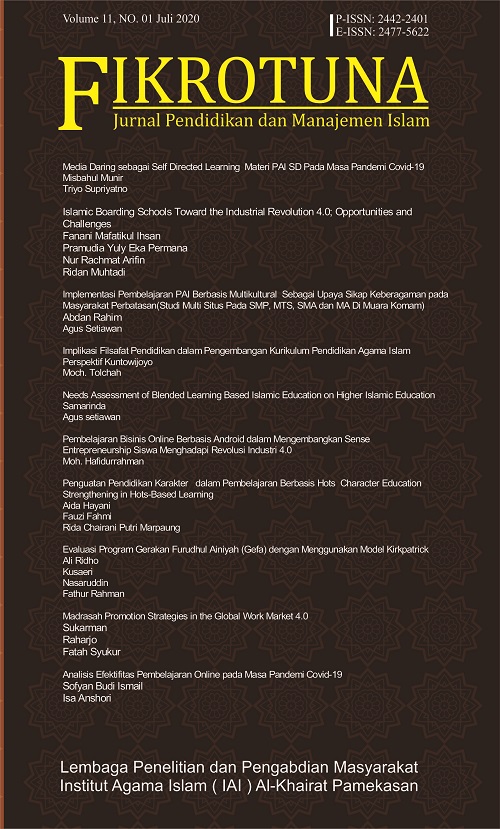Pendidikan Prinsip Keadilan dalam Akuntansi Syariah
DOI:
https://doi.org/10.32806/jf.v16i02.6333Keywords:
Education on the principle of justice, profit allocation, sharia accountingAbstract
The purpose of this study is the application of the principle of justice in sharia accounting which examines the allocation of profits to stakeholders with the object of Islamic banking research. The research method used in this research is a qualitative descriptive type with the type of data in the form of allocation of company profits referring to financial reports and other data that supports research through interviews with the application of justice principles in sharia accounting. These data are collected and analyzed by comparing the application of the provisions regarding the allocation of profits in Islamic banking with the teachings of Islamic accounting in Islam. The research was conducted at one of the Sharia People's Credit Banks located on Madura Island. The results of the study can be concluded that the financial statements at the Islamic People's Credit Bank (BPRS) have shown a proportional allocation of profits to stakeholders, namely profits have been allocated to owners of funds consisting of customers and shareholders as well as to employees by applying Islamic values ​​in sharia accounting. Implementation refers to education on the principles of justice applied by the BPRS, this can be seen from the allocation of profits to stakeholders who have achieved the value of justice in accordance with Islamic teachings in sharia accounting.References
Agustina, E., Pengaruh Perputaran Modal, Hutang dan Modal Sendiri terhadap Profitabilitas pada Perusahaan Food & Beverages. Skripsi. Sekolah Tinggi Ilmu Ekonomi Indonesia (STIESIA). Surabaya, 2017.
Djalaluddin. Ahmad Investasi di Pasar Modal: Perspektif Syari,ah (ppt). Materi disajikan dalam Seminar Nasional Mengenal Lebih Dekat Investasi Syariah dan Pasar Modal, Fakultas Ekonomi Universitas Islam Negeri (UIN) Maulana Malik Ibrahim Malang, 2010.
Mujayaroh & Rohmat, “Pengelolaan Dan Pengalokasian Dana Pendidikan di Lembaga Pendidikanâ€, Arfannur: Journal of Islamic Education, Vol. 1, No. 1, (2020).
Nurhayati, Sri. Akuntansi Syariah di Indonesia. (Jakarta: Salemba Empat, 2009).
Rukmana, Amir Machmud. Bank Syari’ah Teori, Kebijakan dan Studi Empiris di Indonesia. (Jakarta: Erlangga, 2010).
Sitepu, Waktu. Analisis Perbandingan Pendistribusi Laba Bersih Akuntansi Konvensional dan Akuntansi Syariah. (Bandung: 2013).
Susiyanto & Sudarto, “Penggunaan Metode Internalisasi Dalam Pembelajaran Ilmu Akhlak Dalam Naskah Serat Kidung Sesingir Karya Pakubuwono IXâ€, Ta’dibuna: Jurnal Pendidikan Agama Islam, Vol. 4, No. 2, (November, 2021).
Triyuwono, Iwan. “Akuntansi Syari’ah: Implementasi Nilai keadilan dalam Format Metafora Amanahâ€, Jurnal Akuntansi dan Auditing Indonesia, Vol. 4. No. 1, (2006.).
Usman, Rachmadi. Aspek-aspek Hukum Perbankan di Indonesia. (Jakarta: Gramedia Pustaka Utama, 2011).
UU No. 21 Tahun 2008
Downloads
Published
How to Cite
Issue
Section
License
Copyright (c) 2022 FIKROTUNA: Jurnal Pendidikan dan Manajemen Islam

This work is licensed under a Creative Commons Attribution-NonCommercial 4.0 International License.


.png)




